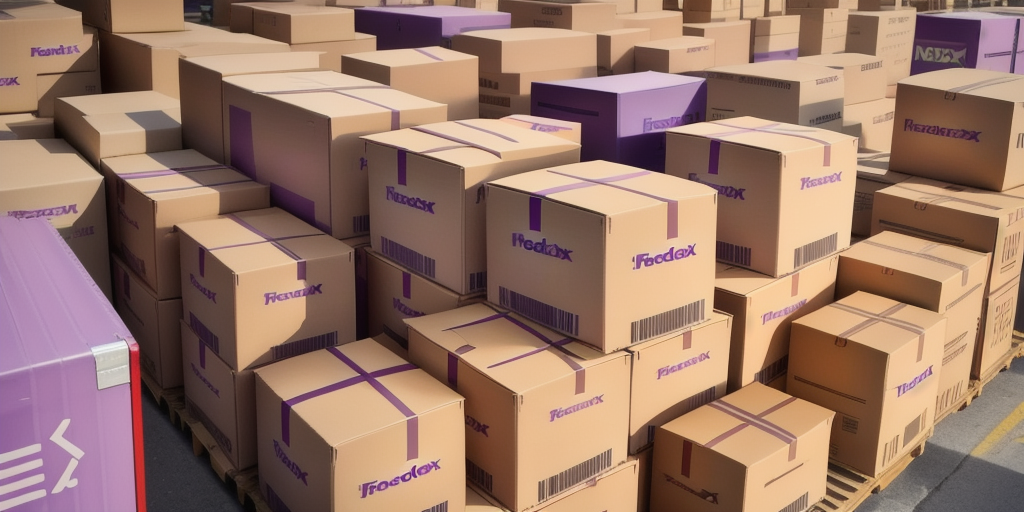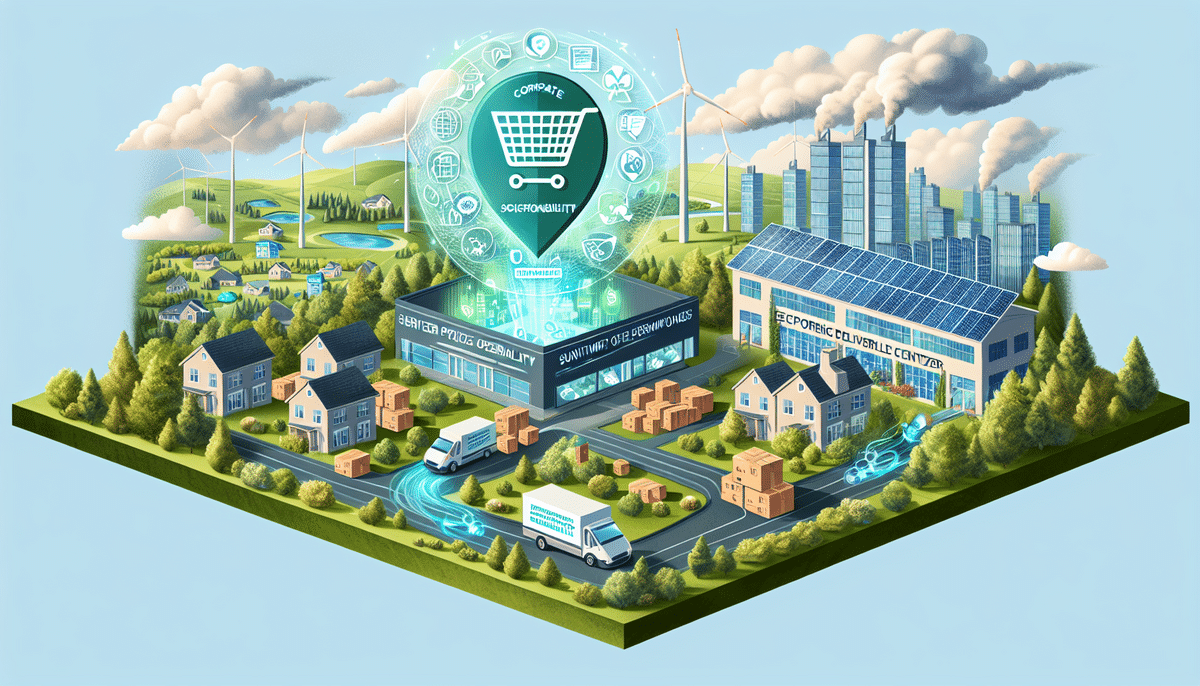Understanding the FedEx Global Responsibility Index
Corporate responsibility has become a pivotal aspect of modern business operations, and FedEx exemplifies leadership in this arena through its Global Responsibility Index (GRI). The GRI is a transparent and comprehensive report that evaluates FedEx's strides toward being a responsible corporate entity. This article delves into the essential components of the GRI, examines how FedEx assesses and communicates its corporate social responsibility (CSR), and highlights the significance of the GRI in today's competitive business environment.
Key Components of the FedEx Global Responsibility Index
The FedEx GRI is structured around four primary pillars: economic, social, environmental, and governance. Each pillar encompasses specific metrics and targets that provide a quantitative measure of FedEx's progress.
Economic Performance
The economic section evaluates FedEx's financial health and its influence on the broader economy. This includes indicators such as revenue growth, profitability, and contributions to economic development.
Social Impact
FedEx assesses its social responsibility by examining its effect on employees, customers, and communities. Key metrics include employee engagement levels, diversity and inclusion statistics, and community investment initiatives.
Environmental Sustainability
Environmental metrics focus on FedEx's efforts to minimize its ecological footprint. This includes tracking carbon emissions, energy consumption, waste management practices, and the adoption of sustainable technologies.
Governance Practices
The governance section scrutinizes FedEx's management structures, ethical practices, and compliance with legal standards. It ensures that the company operates with transparency and accountability.
Measuring and Reporting Corporate Social Responsibility
FedEx employs a multifaceted approach to measure its CSR, utilizing data collection, employee and stakeholder surveys, and engagement initiatives. Adhering to external standards like the Global Reporting Initiative (GRI) framework ensures that FedEx's reporting is both transparent and credible.
Annual Sustainability Reports
Beyond the GRI, FedEx publishes an annual sustainability report that provides in-depth insights into its sustainability initiatives and their impacts. These reports offer detailed data and analysis, showcasing fuel efficiency improvements, renewable energy adoption, and waste reduction efforts.
Audits and Assessments
Regular audits and performance assessments help FedEx identify opportunities for enhancing its social and environmental performance. These evaluations are crucial in setting and achieving ambitious goals, such as reducing carbon emissions by 50% by 2040.
Stakeholder Engagement
FedEx actively engages with a diverse range of stakeholders, including customers, employees, suppliers, and community organizations. This dialogue ensures that the company's CSR initiatives align with stakeholder expectations and societal needs.
Significance of the FedEx Global Responsibility Index in Today's Business Landscape
The GRI serves as a vital tool for measuring and communicating FedEx's CSR journey. By setting specific, measurable targets, FedEx can continuously improve and showcase its commitment to sustainable business practices. Moreover, the GRI sets a benchmark within the logistics industry, encouraging other companies to adopt similar reporting frameworks.
Building Trust and Credibility
Transparent reporting fosters trust among stakeholders. Customers are increasingly favoring companies with strong CSR commitments, while investors are prioritizing sustainability in their investment decisions. FedEx's GRI thus enhances its reputation and stakeholder confidence.
Benchmarking and Industry Standards
By adhering to industry standards and comparing its performance against peers, FedEx can identify best practices and areas needing improvement. This benchmarking drives continuous advancement in CSR efforts across the logistics sector.
Environmental Sustainability Initiatives at FedEx
Environmental sustainability is at the core of FedEx's CSR strategy. The company has implemented numerous initiatives aimed at reducing its environmental impact and promoting sustainability.
Adoption of Alternative Fuels
FedEx is committed to reducing its reliance on fossil fuels by investing in alternative fuels. The company aims to source 30% of its jet fuel from alternative sources by 2030. Additionally, FedEx has expanded its ground fleet with electric and hybrid vehicles, thereby decreasing greenhouse gas emissions.
Energy-Efficient Technologies
In its facilities, FedEx has incorporated energy-efficient technologies to minimize energy consumption. This includes LED lighting, advanced HVAC systems, and energy management systems that optimize operational efficiency.
Sustainable Packaging Solutions
FedEx is leading the way in sustainable packaging by using eco-friendly materials and designing packaging that is easier to recycle. The company also encourages its customers to adopt sustainable packaging practices by offering incentives and resources.
Water Conservation Efforts
FedEx has implemented water conservation measures across its operations, aiming to reduce water usage and improve water quality. Collaboration with suppliers and partnerships with environmental organizations further these goals.
Social Responsibility Initiatives Worldwide
FedEx's commitment to social responsibility is reflected in its diverse range of initiatives aimed at supporting employees, customers, and communities globally.
Employee Wellness Programs
FedEx invests in employee wellness through comprehensive programs that support physical and mental health, professional development, and work-life balance. High levels of employee engagement contribute to a motivated and productive workforce.
Disaster Relief Efforts
FedEx plays a critical role in disaster relief by leveraging its logistics expertise to deliver essential supplies and aid to affected regions. Programs like "Delivering for Good" ensure that humanitarian organizations receive timely support.
Charitable Giving and Community Support
Through initiatives such as the FedEx Cares program, the company supports local communities via volunteerism and financial contributions. These efforts help build resilient communities and foster positive social impact.
Technology and Innovation in Advancing Corporate Responsibility
FedEx harnesses technology and innovation to enhance its CSR initiatives, driving efficiency and reducing environmental impact.
Data Analytics and AI
By utilizing data analytics and artificial intelligence, FedEx optimizes its transportation routes, leading to reduced fuel consumption and lower emissions. These technologies also improve operational efficiency and customer service.
Real-Time Package Tracking
FedEx's real-time package tracking systems enhance the customer experience by providing accurate delivery updates. This innovation not only improves service quality but also reduces the need for unnecessary transportation, contributing to sustainability efforts.
Humanitarian Logistics Support
Programs like "Delivering for Good" leverage FedEx's logistics network to support humanitarian missions. This includes delivering medical supplies, supporting education initiatives, and providing transportation for emergency response efforts.
Diversity and Inclusion Initiatives
FedEx promotes diversity and inclusion within its workforce by establishing employee resource groups and partnering with organizations that support underrepresented communities. These initiatives foster an inclusive culture and contribute to social equity.
Economic Impact of FedEx's Corporate Social Responsibility
FedEx's CSR efforts not only benefit society and the environment but also positively influence the company's economic performance.
Cost Savings and Efficiency
The adoption of alternative fuels and renewable energy sources has led to significant cost savings by reducing fuel expenses and enhancing energy efficiency. Waste reduction and recycling initiatives also contribute to lower operational costs.
Reputation and Customer Loyalty
Strong CSR practices enhance FedEx's reputation, leading to increased customer loyalty. Environmentally conscious consumers are more likely to choose companies with demonstrated sustainability commitments.
Attracting and Retaining Talent
FedEx's focus on employee engagement and well-being attracts top talent and reduces turnover rates. A motivated and satisfied workforce drives productivity and innovation.
New Business Opportunities
Sustainable packaging solutions and eco-friendly practices open up new markets and revenue streams. Companies seeking reliable logistics partners with strong CSR credentials prefer FedEx, expanding its business prospects.
The Future of Corporate Responsibility: Insights from the FedEx Global Responsibility Index
The FedEx GRI offers valuable insights into the evolving landscape of corporate responsibility, emphasizing the need for transparency, accountability, and stakeholder engagement.
Emphasis on Environmental Sustainability
As global awareness of environmental issues grows, FedEx continues to prioritize sustainability initiatives. The GRI framework facilitates the setting of ambitious targets to reduce the company's carbon footprint and enhance resource efficiency.
Diversity, Equity, and Inclusion
FedEx recognizes the importance of fostering a diverse and inclusive workplace. Metrics for diversity and inclusion within the GRI help the company track progress and implement strategies to enhance representation and equity.
Transparency and Accountability
Continuous improvement in transparency and accountability is essential for maintaining stakeholder trust. FedEx's commitment to open reporting and honest communication reinforces its dedication to responsible business practices.
Comparing the FedEx Global Responsibility Index to Industry Standards
The FedEx GRI stands alongside other prominent reporting frameworks, such as the Dow Jones Sustainability Index, the Carbon Disclosure Project (CDP), and the UN Sustainable Development Goals (SDGs). Each framework offers unique strengths and focuses, providing companies with different lenses to assess and report their CSR efforts.
Unique Focus on Supply Chain Sustainability
A distinguishing feature of the FedEx GRI is its emphasis on supply chain sustainability. This involves assessing and improving sustainability practices throughout FedEx's supply chain, including collaborations with suppliers to reduce environmental impact and ensure fair labor practices. This focus is particularly crucial in the logistics sector, where operational activities significantly affect environmental and social outcomes.
Benchmarking and Best Practices
By comparing its performance with industry standards, FedEx can identify best practices and areas for enhancement. The comprehensive nature of the GRI allows FedEx to maintain high standards in CSR reporting and operational excellence.
In summary, the FedEx Global Responsibility Index is a robust framework that guides the company's efforts in economic performance, social impact, environmental sustainability, and governance. Through diligent measurement, reporting, and continuous improvement, FedEx not only fulfills its corporate responsibilities but also sets a benchmark for the logistics industry, fostering a culture of sustainability and ethical business practices.






















